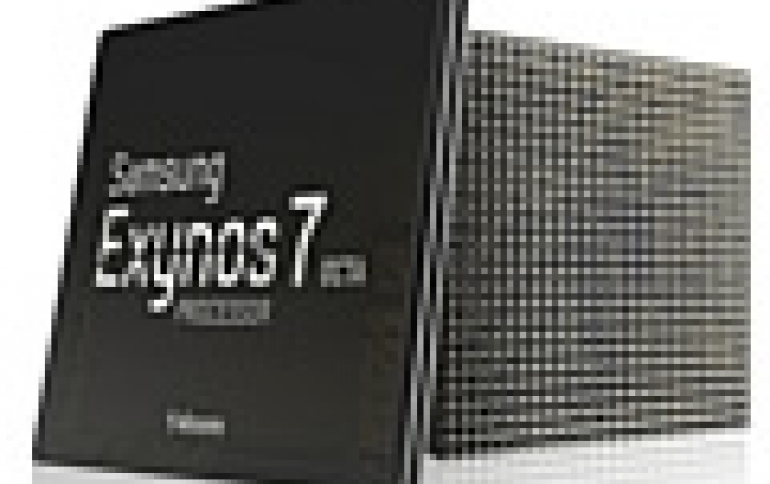
Samsung Starts Mass Production of The 14nm FinFET Exynos 7 Mobile Application Processor
Samsung Electronics has started mass-producing mobile processor chips using a finer 14-nanometer FinFET technology, which will strengthen its semiconductor productivity. "Samsung’s advanced 14nm FinFET process technology is undoubtedly the most advanced logic process technology in the industry," said Gabsoo Han, Executive Vice President of Sales & Marketing, System LSI Business, Samsung Electronics. "We expect the production of our 14nm mobile application processor to positively impact the growth of the mobile industry by enabling further performance improvements for cutting-edge smartphones."
The 14nm FinFET process is able to higher levels of efficiency, performance and productivity. When compared to Samsung’s 20nm process technology, this newest process enables up to 20 percent faster speed, 35 percent less power consumption and 30 percent productivity gain, according to the company.
By incorporating three-dimensional (3D) FinFET structure on transistors, Samsung has overcome performance and scaling limitations of the planar structure used in previous 20nm and older processes and gained a competitive edge in advanced semiconductors for the mobile industry.
Samsung’s 14nm FinFET process will be adopted by its Exynos 7 Octa, then expanded to other products throughout the year.
At a high level Exynos 7 will have four Cortex A57s clocked at 2.1 GHz, in addition to four Cortex A53s along with an LPDDR4-capable memory interface.
The Exynos will power the company's next flagship smartphone, the Galaxy S6, which will be unveiled on March 1, a day ahead of this year's Mobile World Congress exhibition in Barcelona.
Samsung is securing customers such as Apple, Qualcomm and Nvidia thanks to its competitiveness in the 14-nanometer FinFET production arena.
"Apple, Qualcomm, Nvidia and Sony will be our key clients. Samsung technology effectively packs more processing power into a smaller space and consumes less power with advantages in pricing," said a Samsung official.
Rival TSMC is still at the 20-nanometer level as its mainstream.





















